The choice of specialized equipment is not difficult at first glance. Rash decisions without preliminary preparation of the project provoke unforeseen large costs during installation and in the process of operation. Careful study of the given topic will help to find a water filter for water for dacha with optimal operating parameters.
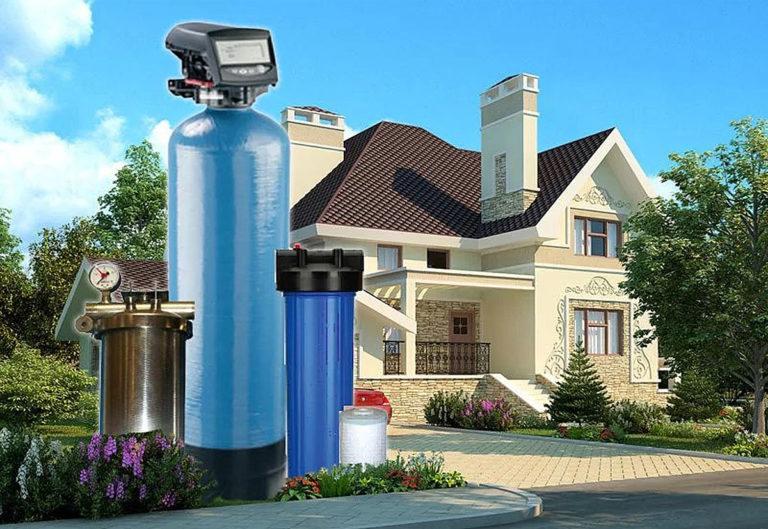
Conteúdo do artigo
The main contaminants in water from a well and a well
Water from these sources in the dacha can be contaminated with various impurities that negatively affect its quality, taste, odor and safety. Let’s consider the main contaminants and ways to combat them.
Hardness salts are soluble calcium and magnesium compounds that determine the increased hardness of water. It provokes the formation of scale in pipes, boilers, washing machines and other household appliances. These impurities deteriorate the properties of detergents, dry the skin and hair, promote the development of kidney stones.
To reduce the content of hardness salts, you can use special devices – softeners. They work on the principle of ion exchange, replacing calcium and magnesium with sodium. The treated liquid becomes soft and suitable for household needs.
Iron is one of the most abundant elements in the earth’s crust. In high concentrations, it gives water a rusty color, metallic taste and unpleasant odor. It can stain linens, dishes and plumbing fixtures with red stains. Under the right conditions, the vitality of iron bacteria is activated, which form slimy deposits on the walls of the well or borehole.
Various methods are used to remove iron from water:
- aeration – saturation with air;
- reagent oxidation – addition of chlorine or hydrogen peroxide;
- filtration through special sorbents (cationites, bio-oxides);
- reverse osmosis – passing through a semipermeable membrane.
Manganese is also often found in groundwater. In large doses, it stains water dark, gives it a bitter taste and a rotten smell. This substance can cause irritation of the skin and mucous membranes, nervous system disorders, anemia.
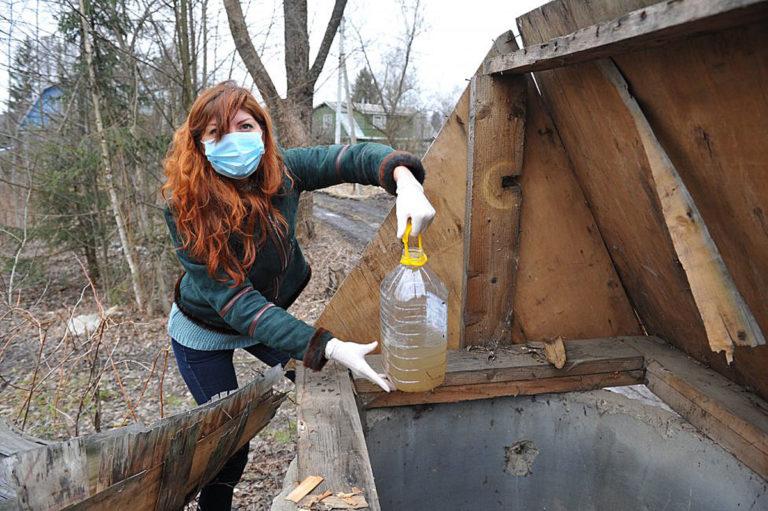
To purify water from manganese, the same methods are used as for iron: aeration, oxidation, filtration, reverse osmosis. However, to effectively remove these impurities, it is necessary to select the optimal parameters of pH (acidity) and Eh (redox potential) of water.
Solid particles of various origin (sand, clay, organics) clog the liquid due to leaky construction of the corresponding engineering structure. They accelerate wear of pumps and clog filters, reduce transparency and aesthetic appeal of water.
To remove “mechanics” in the dacha, you can use coarse filters with different degrees of filtration (from 100 to 5 microns). Such devices are installed at the entrance to the water supply system or before each consumer (faucet).
Heavy metals are elements of the periodic table with high density: lead, cadmium, mercury, chromium and others. They get into groundwater due to anthropogenic pollution (industry, transportation, agriculture). These impurities are toxic to humans and animals, can cause various diseases (allergies, oncology, immune disorders).
To purify water from heavy metals, filters with activated carbon or other adsorbents (zeolites) are used. Specialized loading materials bind ions of harmful substances on their surface. You can also use reverse osmosis or distillation (evaporation and condensation) methods, which allow you to get virtually pure water without any impurities.
The best water purification filters
The main contaminants are removed with the help of special technologies. Let’s consider the features of these methods on the examples of filters that can be used in the dacha to improve water in domestic conditions.
Half-fiber
In these devices, the working unit is created from thin polymer tubes with microscopic pores on the surface (0,01-0,1 microns). A bundle of hollow fibers forms a membrane through which only pure water passes. Contaminants remain on the surface or are washed out by the return flow.
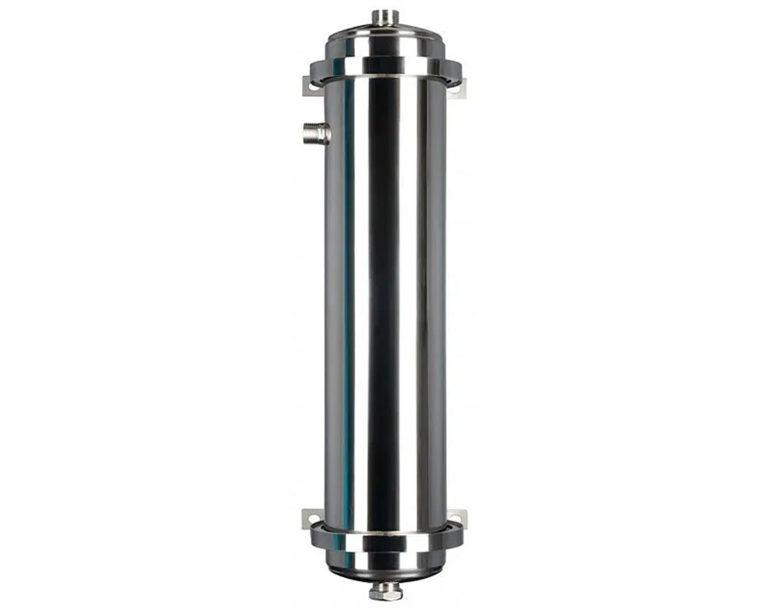
Advantages of hollow fiber filters for fine water purification:
- high degree of water purification from biological and chemical contaminants;
- long service life (for washable models);
- preservation of useful minerals after treatment.
Products of this category are more expensive compared to typical cartridges. They create additional hydraulic resistance. Their use requires pre-cleaning from large mechanical impurities and maintenance of operating temperature not exceeding +40 °C.
Electromagnetic
For a well, this device can be called a mandatory component of the equipment. In deep sources, the content of hardness salts is increased, and electromagnetic treatment is an effective way to protect against scale. This procedure does not remove impurities from the water, but changes their ability to transform, in the form of precipitated calcium scale on the walls of pipes or technological equipment.
Electromagnetic devices are characterized by the following advantages:
- easy connection;
- absence of costs for complicated maintenance;
- long service life;
- long range of action.
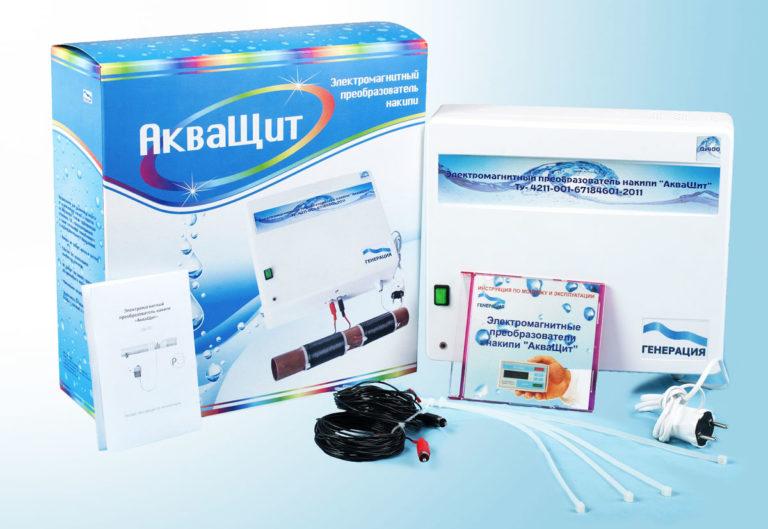
The only disadvantage is the consumption of electricity. However, with a capacity of 5 to 20 W / h, the corresponding costs in the economic calculation can be neglected.
Flow-through (mains)
Models of this category are installed under the sink or on the tap, purifying water directly before use. Are distinguished by compact dimensions, and their use does not require additional storage space for purified liquid.
Flow filters for water purification in the countryside are produced with a different number (from 1 to 5) of working modules, which determine the effectiveness of processing:
- mechanical cartridge removes large particles of sand, rust, clay and other large impurities from the water;
- charcoal – retains chlorine (organic compounds, pesticides) and improves the taste (odor) of water;
- de-ironizing – extracts iron and manganese;
- ion exchange – reduces water hardness by reducing calcium and magnesium content.
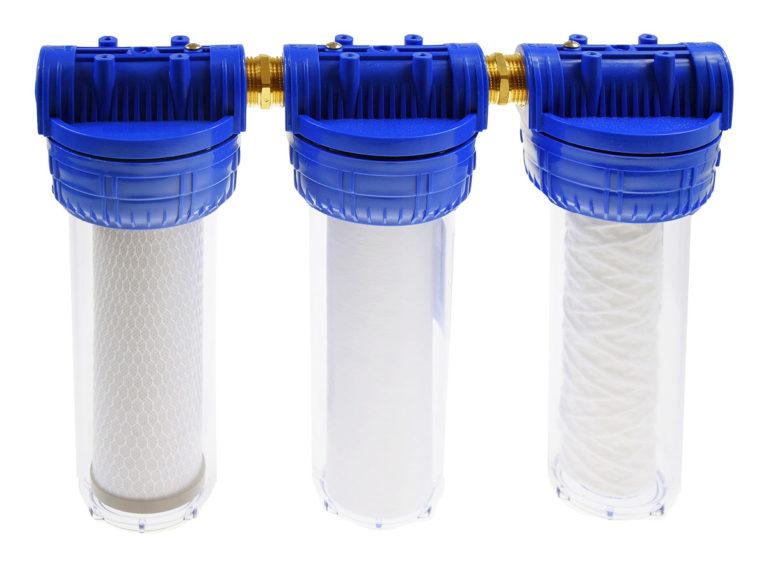
Bactericidal unit destroys bacteria, fungi, microorganisms with the help of ultraviolet radiation. It differs from standard cartridges by a more complex design. Radiation in the desired part of the spectrum is generated by a lamp connected to a separate power supply.
Typical flow-through main water filter for dacha is characterized by the following advantages:
- low price;
- compactness;
- ease of maintenance.
The main disadvantage is the need for regular replacement of cartridges every 3-6 months or more often. A relatively small working volume does not allow you to perform treatment qualitatively when the water in the source is heavily polluted.
Fine and coarse filtration
To fine filtration can be attributed to the considered hollow fiber membranes. Also in this category include reverse osmosis. Corresponding devices work with the use of other membranes, which are created with microscopic technological channels – from 0.0001 to 0.001 microns.
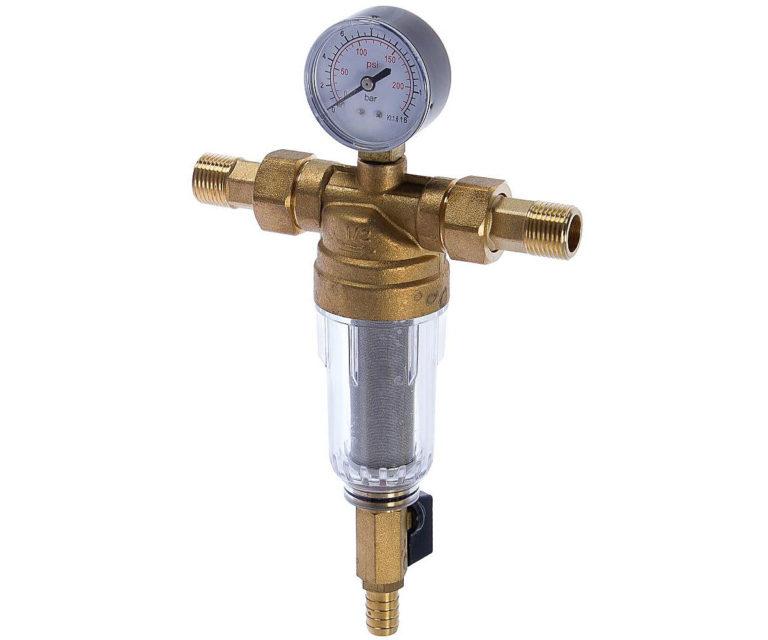
The advantage of reverse osmosis is the highest degree of water purification from all types of contaminants:
- dissolved hardness salts;
- heavy metals;
- viruses and microbes.
These systems create a high hydraulic resistance and operate at low capacity. Part of the water (up to ¾ of the incoming quantity) is sent together with impurities to the drain. Additional pre/final treatment modules should be included.
Coarse cleaning is a method of removing contaminants with sizes from 1 micron (micron). String filters and individual polypropylene cartridges have this capability. Mesh modules for the well are used in the first stage of treatment to trap contaminants with sizes from 50 microns.
Brands of filters
The popularity of products of reliable manufacturers is confirmed by high marks in thematic ratings. Products offered on the market under these trademarks are characterized by improved control parameters.
Aquaris
A trademark of hollow-fiber filters with a washing function. Serial products are designed to treat up to 500,000 liters of contaminated water without deteriorating the quality of purification.
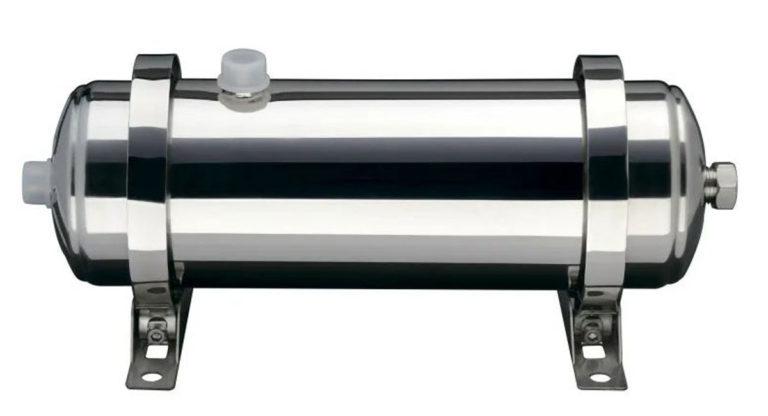
Akvashchit
Under this brand are produced electromagnetic devices for protection against limescale. The most powerful (20 W) models with a range of up to 2 kilometers work with water hardness up to 25 °J.
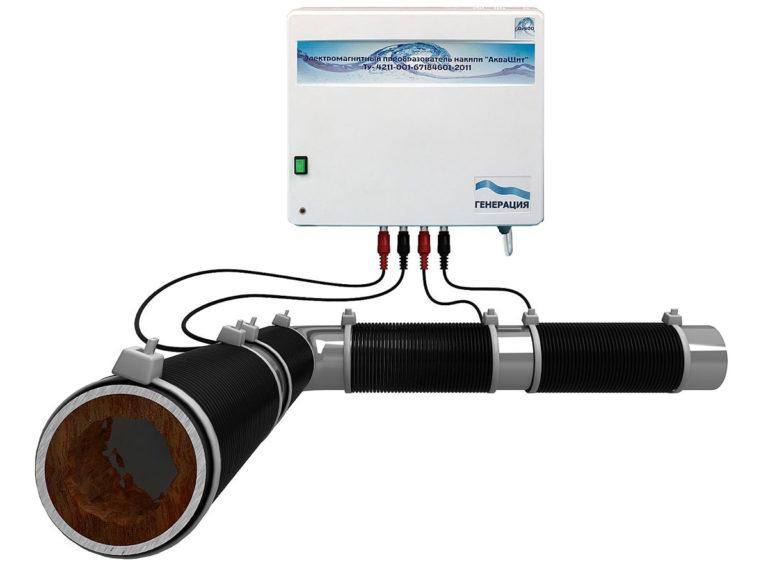
Geyser
The company produces column filters for deironing water and universal models, jugs and reverse osmosis systems. Geyser develops and manufactures branded loads. More than 30 technologies are protected by patent rights.
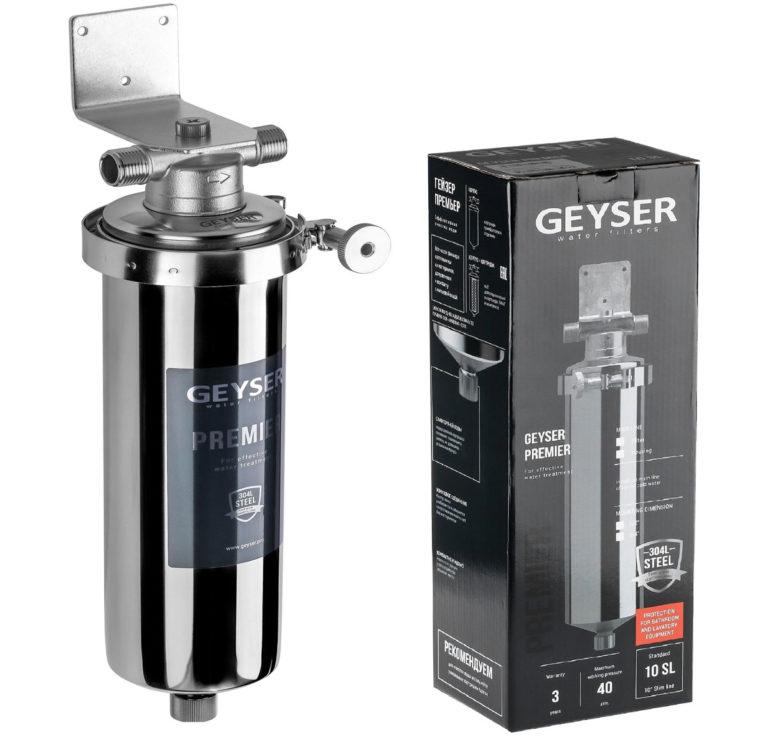
Aquaphor
This company is also a developer of new technologies: Carbonblock, Aqualen, water-water tank, etc. It offers a wide range of specialized equipment in all thematic product groups – from simple faucet nozzles to complex installations with automated control.
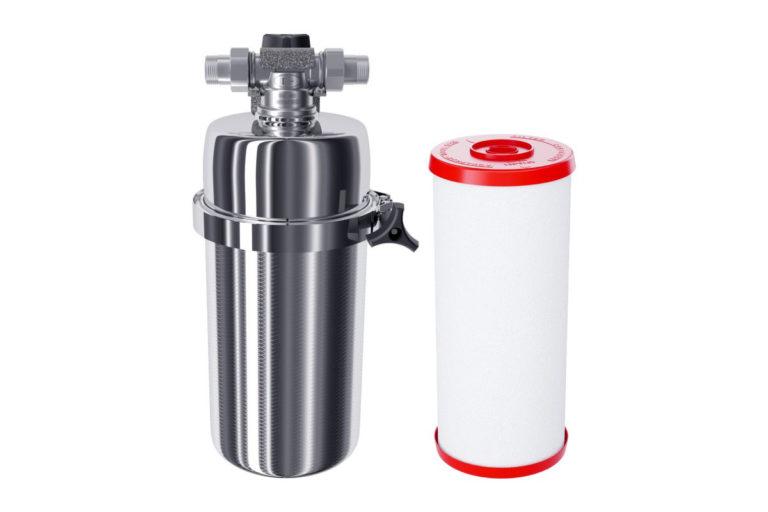
What filter to choose and buy for the dacha?
To exclude errors, it is recommended to make an analysis of impurities in the source. The obtained data will help you choose the best filter for dacha, taking into account the specific composition of contaminants and the concentration of impurities.
What is better to cope with iron, lime and rust?
Manufacturers indicate in the documentation the intended purpose of their products. In addition to specialized, universal models are produced. The application of ion exchange, for example, can be used for softening and deferrization.
Prices
Buy water filters for water purification for the dacha without intermediary markups can be purchased in the store of the corresponding manufacturer. These companies offer sample analysis, delivery, installation and other services. Comprehensive fulfillment of the order implies lower costs, general guarantees for products and quality of work performed.
Our recommendations
What is the best filter from iron or other contamination, you can conclude from the data presented in the publication. But in complex situations, it is necessary to use the help of an experienced specialist. The best solution is the professional preparation of the project, based on the quality of groundwater, taking into account the special requirements of the client, noted in the terms of reference.

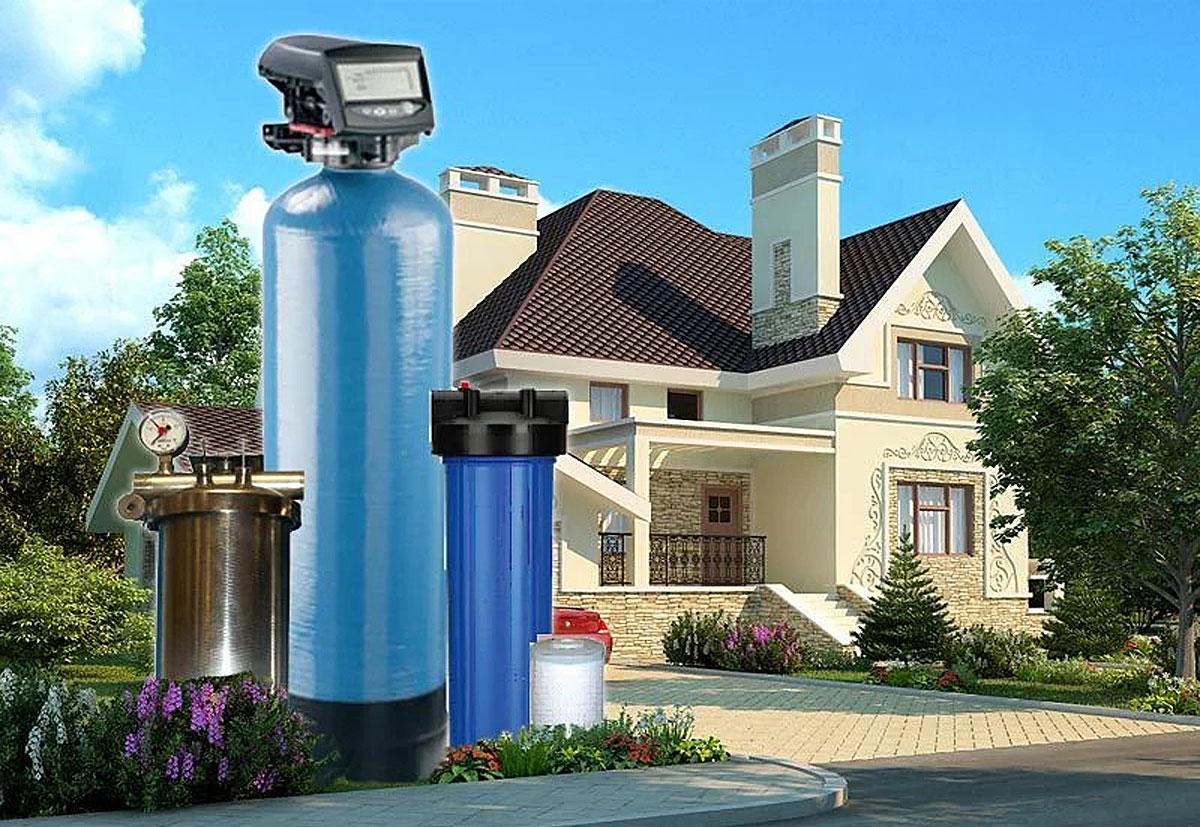
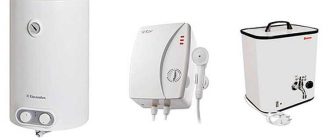

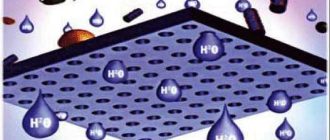
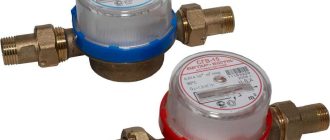
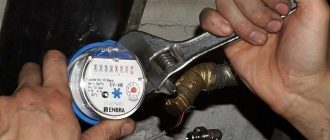
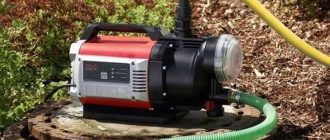
OMG, I totally get the struggle with well water! When we got a filter for our dacha, it changed everything. Crystal clear water tastes amazing! Just go for a carbon filter if you want the best bang for your buck. Trust me, your morning tea will thank you!